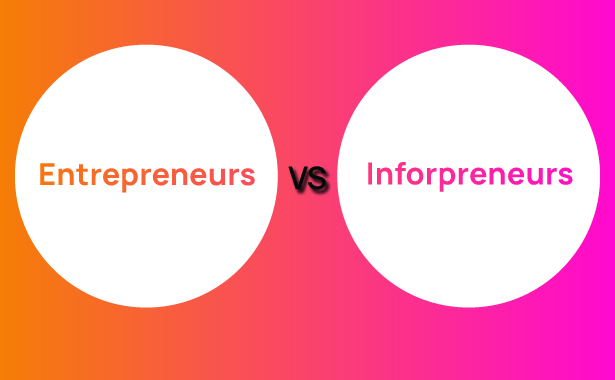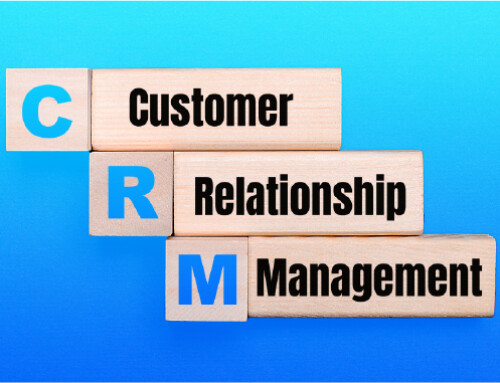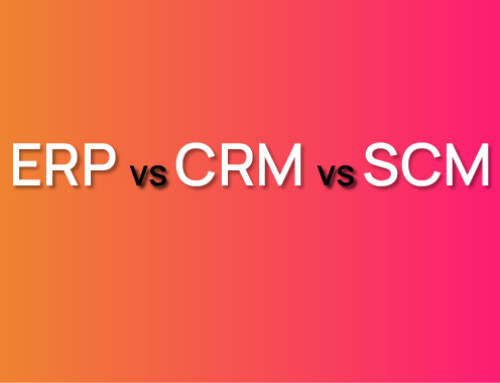Contents
Recent years have shown everyone that there are so many different ways of making money than what they could imagine. From all types of influencers to technopreneurs, these high-paying, new revenue sources are changing everything. In 2022, infopreneurship is the cutting edge of ways to make money online. You may have heard about Infopreneurs, but they’re a pretty recent type and their meaning and importance are not obvious from the start. The simplest way to clarify the difference between entrepreneurs and Infopreneurs is to say that Infopreneurship involves selling your knowledge instead of a product or service. That can take different forms, from online courses to teaching online to selling an ebook. But what exactly do Infopreneurs do to make money? Is Infopreneurship profitable? And can you try your hand at it without investing too much of your time and budget?
That’s where this post comes in. Here, I’ll take a look at the difference between entrepreneurs and Infopreneurs from different angles and show why Infopreneurship is becoming a game-changer during the recession. Before getting to that and discussing how you can become an Infopreneur, I’m going to go over some basics that will give us a better picture of Infopreneurship and how it works.
What Does Infopreneur Mean?
An “Infopreneur” is a person who sells information products such as ebooks and online courses. Unlike traditional entrepreneurs, Infopreneurs don’t need to worry about owning inventory or having employees. Infopreneurs can make money with very little overhead cost by following a few simple steps:
- Identify their target market and build a list of potential customers.
- Create their first product (usually an ebook).
- Create marketing material for their books, like sales pages and email sequences that will encourage people to buy immediately upon launch.
What Do Infopreneurs Do?
In the past, entrepreneurs created and sold products or services to their customers. They were usually the first to introduce a new product or service and the first to sell their products or services online. Entrepreneurs also often launched on Amazon.
Today’s Infopreneurs are no different in terms of providing value for your target audience; however, they’ve found another way of doing so: by creating content (and not just any content).
Today, There Is A Relatively New Way Of Doing Business
Today, there is a relatively new way of doing business. It’s called Infopreneurship.
Infopreneurs are entrepreneurs who focus on selling information to customers using the internet. They sell products and services in the same way as any other entrepreneur does, but their product or service can be intangible. For example, an Infopreneur might sell eBooks about how to start your own business or even provide live webinars on how to start your own business. They are not limited to just one type of product offering and can specialize in multiple areas that might include selling consulting services related to technology, marketing and other topics relevant for small businesses looking for help with growing their company online.
Infopreneurs Create And Sell Information To Their Customers
Infopreneurs create and sell information to their customers. This can be a physical product like an ebook or a service like a tutorial or free online class. In either case, information is the key product that Infopreneurs sell—the difference between entrepreneurs and infopreneurs is that entrepreneurs own some inventory (like a restaurant owner who carries food in his kitchen and stocks his shelves), while Infopreneurs don’t carry any inventory at all.
The Information They Sell Could Be A Physical Product Like An Ebook
The information they sell could be a physical product like an eBook.
This is the most common type of information product and it’s what most people think of when they hear the term “information marketing.” The author writes the content, then packages it into a book or some other type of product that can be delivered digitally (eg: PDF), physically (eg: ebook) or both. Some examples of successful physical products include:
- eBooks
- online courses (courses are similar to books but typically have more videos & other interactive elements)
- PDF downloads
An Infopreneur can sell their information as a physical product like an eBook. This is the most common type of information product and it’s what most people think of when they hear the term “information marketing.” The author writes the content, then packages it into a book or some other type of product that can be delivered digitally (eg: PDF), physically (eg: ebook) or both. Some examples of successful physical products include: eBooks online courses (courses are similar to books
It Could Also Be A Service Like A Tutorial Or Free Online Class
You could also be an Infopreneur by providing a service, such as a tutorial or free online class. It all depends on what you want to offer and how much time you want to invest in this side hustle.
If your goal is to make money fast, I recommend starting with an ebook. It’s quick, easy and affordable to create one—and there are many different ways for it to make money for you:
- Sell the ebook on Amazon Kindle Direct Publishing (KDP). The $0-$99 price range enjoys the highest royalties (70%) but also requires readership numbers that could take some time before hitting that sweet spot of sales volume where you start earning real income from KDP.
- Charge for access to download PDF files of your ebook through email — most people will opt-in if offered something valuable enough at no cost (like a free 5-day e-course teaching them how they can earn $1 per day). Here’s how I did this when launching my first book!
- Create your own infopreneur website where visitors can view content without registering or paying anything upfront — just set up membership options priced anywhere between $9-$29 per month depending on what level of access each membership provides users with once they sign up!
Another option is to start with a physical product. The manufacturing process can be costly, but the end result is something tangible that people can hold in their hand and use however they want—which means there’s a huge potential for profit if designed correctly.
What Makes An Infopreneur Different From A Traditional Entrepreneur Is That They Typically Don’t Own Any Inventory
What makes an Infopreneur different from a traditional entrepreneur is that they typically don’t own any inventory. They’re not shipping products into 10,000-square-foot warehouses or hiring staff to manage the logistics of their business. Instead, they’re focusing on the creative side of their company and leaving all of the other details to someone else.
The Infopreneur doesn’t have to worry about inventory. The Infopreneur doesn’t have to worry about shipping. The Infopreneur doesn’t have to worry about warehousing. All of this translates into more time and budget available to do the actual business of knowledge sharing. Infopreneurship seems almost designed for efficiency
If your business sells an eBook, you aren’t keeping books in a warehouse somewhere. You don’t need to pay employees or office space. You don’t need inventory, advertising, and other expenses that come along with traditional businesses. That means less overhead costs and more profits!
What are the Main Costs of Infopreneurship?
The difference between an entrepreneur and an Infopreneur is that while entrepreneurs invest in their business, Infopreneurs are paid by others to promote their products.
Instead, your business costs are associated with marketing and paying affiliates who help sell your product for you.
An affiliate is someone who has a website or blog that already has an audience. When they promote a product through their site, they earn a commission if someone buys it through one of their links. It’s kind of like selling ad space on a website: if someone clicks on the ad and then buys something from the advertiser, you get paid based on how much traffic came from those clicks (and how many people bought).
Affiliates are paid by others to promote their products. Instead, your business costs are associated with marketing and paying affiliates who help sell your product for you. An affiliate is someone who has a website or blog that already has an audience. Promoting a product through their site, they can earn a commission if someone buys it through one of their links. It’s kind of like selling ad space on a website: if someone clicks on the ad and then buys something from the advertiser, they’ll get paid a small amount.
No Rent, No Payroll — All You!
You don’t have to pay employees or rent office space. You also don’t have to pay for a warehouse, storefront, or vehicle if you do not want them.
Very Little Overhead Cost Compared To Other Businesses
If you are interested in becoming an Infopreneur, this is a great way to make money with very little overhead cost compared to other businesses. In fact, many people can start making money with no initial investment at all!
You will need to spend time researching popular niches that you want to write about. You will also want to create a website or blog and set up your affiliate program so that you can get traffic going through your site as quickly as possible. The best way for me was definitely through Google Adsense(s). I would recommend starting with them because they are the largest and most trusted network out there in terms of getting your ads seen by qualified buyers. This means more buyers clicking on them which equals more money!
If you decide that becoming an Infopreneur would be right for you then there are many ways (like Google Adwords) where one can start making money fairly easily without needing much capital outlay up front!
Infopreneurship Is An Inexpensive And Flexible Way To Start Making Money Online Today!
In a nutshell, Infopreneurship is the act of selling information products online. Unlike traditional businesses, which require a lot of upfront costs and time to see any profit, Infopreneurship is an inexpensive and flexible way to start earning money today. You can get started on a small budget and work from anywhere in the world that has access to the Internet. You don’t need much experience at all—most people who try it find that they’re able to make money right away with very little effort! And since you’re selling digital products rather than physical ones (as with ebooks), there’s no need for storage space or shipping costs either! Infopreneurial opportunities are also available on a part-time basis, so even if you only have an hour or two per day to commit yourself toward this career path, you’ll still be able to make some cash while pursuing other passions such as writing fiction novels or playing video games with friends online.
Infopreneurship is a great way to make money if you have an idea for something that people might be interested in buying. There are many different ways to start your own business and build up your customer base, so it’s important not to get overwhelmed by all the choices out there! Choose one idea first, then work on making it successful before branching out into other areas.”
There are also many different ways to market your products and services online, including email marketing campaigns or social media advertising on Facebook, Twitter, Instagram, Pinterest, etc. You can use all of these methods at once—or just one! Whichever path you choose will depend on how much time and effort you want to put into it. Infopreneurship is an inexpensive and flexible way to start making money online today! It’s easy for anyone with an idea for something that people.
4 Most Common Infopreneur Examples in 2022
We have been talking about Infopreneurs throughout this blog post and by now the difference between entrepreneurs and Infopreneurs should be more or less clear. But let’s look at some examples all the same — nothing can simplify the whole concept as a few good examples. So, let’s take a look at the four main types of infopreneurs out there right now. If you’re thinking about becoming an Infopreneur yourself, this list of the 4 most common Infopreneurs examples in 2022 can help you decide which one may be more in line with your personality and demands.
The Digital Coach
You could be a digital coach in the future. Digital coaches help people solve problems using the internet, and they often charge for it. If you know how to use the internet well and are good at helping people with their problems, then you’re already halfway there!
If this sounds like something you might want to do someday, here’s what else you need to know:
- What is a digital coach? A digital coach is someone who helps others use technology in order to solve their problems more easily. A great example of this would be if your friend wanted help setting up their new smartphone—you could help them! You wouldn’t necessarily have any formal training or certification; instead, it would be more about having the right tools and knowledge base needed for success.
- How do I become one? As long as someone has access to both hardware (such as laptops) and software (like Microsoft Office), then there isn’t much else required when it comes down exclusively to being able
The Personal Development Blogger
Blogging is a great way to monetize your knowledge. You’re probably an expert in something, whether it be cooking, personal finance or even something more obscure like how to make a perfect martini. The key here is that there are lots of other people out there who want to learn from you and see what you have to offer. By taking the time to blog about this topic on a regular basis and building up an audience around it, it will be easier for them (and also for sponsors) to find you as someone with expertise in the area.
This can also help build your personal brand because if readers see that their favourite blogger has written something new on their blog, then they’ll be more likely to come back and visit the site again soon after reading it too!
The Online Content Creator
If you are thinking about becoming an infopreneur, content marketing is a powerful business model that you should consider. Content marketing is a low-cost, high-reward strategy that can help you build trust with your audience and turn them into loyal subscribers to your newsletter or email list.
Content marketing allows you to deliver valuable information to your target market on a consistent basis in order to build both trust and brand awareness. It also gives you a great way for building an audience and growing your list of prospects who will eventually become customers or clients.
The Online Course Master
An online course is one of the most popular ways for people to make money online. Courses can vary in length from a few hours to a few weeks, and some courses can help you hone your skills and learn new things.
Many people who create an online course are experts on their topic or have extensive experience in it. For example, if you’re an expert at dog training or have been involved in it for years, you could create an online course about how to train dogs effectively as well as all about different breeds of dogs. This would be a great way to monetize your knowledge and help others learn how they too can train their own dogs better!
You don’t necessarily need professional qualifications or education in order to create an online course though – but if possible try not to go straight into creating one without having any prior knowledge of what it takes (you can always start small).
Want To Give Infoprenership A Try? Read This Section First!
Here are my top tips for creating your own online course business:
Use A Tool To Create And Sell Online Courses
- Use a tool to create and sell online courses. There are many tools out there that can help you set up an online course, including SimpleK12, Teachable, and Skillshare. Make sure the tool has all the features you need and that it’s easy for you to use.
- Make sure your courses are easy for people to create with your tool—and also make sure they’re easy for people to buy from within your course creation platform (i.e., don’t make them go through another sales process).
- Choose one or two platforms where it makes sense for you and your teaching style as well as how much time you want/need to devote each week to marketing and promotion activities related only to this part-time gig—and then stick with those platforms until they no longer suit his/her needs rather than trying different ones every couple years just because someone else says so!
Create an Infopreneur Website To Promote Your Courses
Creating an Infopreneur website is a good way to promote your courses. It’s also a great way to sell them. An Infopreneur website is like having an online store or storefront for your products and services. You can use it to market your courses, advertise them, and even sell them directly from the site itself.
There are many ways to build a website. You can use WordPress, Squarespace, Wix, or Shopify. Or you can even code one yourself using HTML and CSS (it’s easier than it sounds!).
Sell Your Courses With Ease
All you need to sell your courses is a payment processor, like Stripe or PayPal, and a shopping cart. If you want to make it easier on yourself and your customers, use Shopify—it has both of these features built into the platform.
If you’re selling an online course that’s delivered through email (like one of our most popular ones), using MailChimp for sending out emails is highly recommended. It’s easy to use and has a large audience of customers who have signed up for your newsletters.
Last but not least: don’t forget about free trials! They’re a great way to get people interested in what you have to offer without having to put out any cash upfront.
As a bonus, MailChimp also offers email automation features that you can use to automate the process of sending out emails to new subscribers and customers. When it comes to selling your courses with ease (and making money while doing so), there are two main requirements: a payment processor like Stripe or PayPal and a shopping cart — well, either those two or a single feature-rich business management software like RunSensible. If you want to make it easier on yourself and your customers, try RunSensible. It has both of these features and so many others built into a single platform, helping you save time and budget.
Online Courses: Make Money While Sharing Knowledge!
Online courses are a great way to make money while sharing your knowledge. If you have expertise in any field, there are people willing to pay for the privilege of learning from you. You may think your knowledge of anime and manga is trivial, but in the right place and with the right presentation, it’s a source of income. There are many ways to monetize an online course, the easiest is simply selling it yourself on platforms like Udemy or Skillshare. Of course, the problem with these platforms is that they take a hefty cut of your sales and don’t give you any freedom to promote and upsell your other Infopreneur content. An alternative solution is to use the same Infopreneur website you already have and turn it into the kind of store that you want, without giving away any part of the profits. To do that, you can use RunSensible’s invoicing and payment system. Together with RunSensible’s Web2LLead feature and the payment-enabled scheduling calendar, you’ll have all the tools you need to monetize your knowledge through selling ebooks, online courses, or even teaching classes online. Interested? Read more about it in my guide to making money with online courses.
This approach takes a lot of the guesswork out of selling courses. You set your own price, collect all the revenue you generate, and don’t have to worry about whether your course will be accepted or not. You’ll also see a very high Return On Investment (ROI) because RunSensible empowers you to sell your ebooks and online courses more easily. All you have to do is create an online course and use RunSensible to monetize it on your website. The best part? You don’t need a lot of money upfront. In fact, how about starting right now for free and seeing it in action for yourself?
How to Start Selling Your Knowledge Like an Infopreneur
So, there you have it. These are the steps you need to take to become an infopreneur and make money from selling online courses. The process is pretty straightforward, but it does require some work and planning on your part. If you’re ready for this journey, we encourage you to start today! We hope that these tips have helped prepare you for what lies ahead on this path toward financial freedom as well as overall success in life.
FAQ
What is the most important difference between entrepreneurs and Infopreneurs?
That would be the way they make money: The difference between entrepreneurs and infopreneurs is that an entrepreneur makes it into a new business while an infopreneur takes existing knowledge and monetizes it.
What are the most common Infopreneur examples?
There are more than a few types of Infopreneurship, but the most common ones are creating online courses, selling ebooks, digital coaching, and teaching online classes.
How can I become an Infopreneur?
It’s easier than you may think. All you need is expertise people are willing to pay for and monetize that expertise by turning it into an ebook, an online course, or even a digital coaching business.
Disclaimer: The content provided on this blog is for informational purposes only and does not constitute legal, financial, or professional advice.






